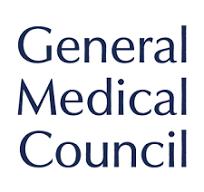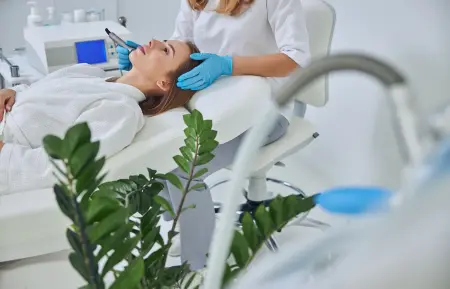🛡️ 100% Satisfaction Guarantee
If you're not completely satisfied with your treatment results within 30 days, we'll provide a refund or free re-treatment. Your satisfaction is our priority.
Licensed & Insured • Risk-Free Treatment
Nathalie Emmanuel
Actress - Game of Thrones Star
Had a wonderful experience with Dr Ken and his staff with my forehead lipoma removal. Thorough in planning before the procedure and so far, l've had a great experience with aftercare. When I had any questions there was always someone available to answer them.

You spoke. We acted.
- You wanted transparent pricing No hidden fees
- You needed a simpler booking process 2‑click scheduling below
94% of patients say they would refer us to friends or family!
*79 out of 84 patients since adaptation.
Transparent Pricing - No Hidden Fees, No Surprises
- Comprehensive consultation
- Removal of your wart
- Complimentary follow-up visit
🛡️ 100% Satisfaction Guarantee
If you're not completely satisfied with your treatment results within 30 days, we'll provide a refund or free re-treatment. What do you have to lose?
💡 Service Information
- Additional Wart removal: £147 each
Supplements
- Head or genital area: £145
- Stitches (if needed): £195
- Plastic Surgeon Upgrade: POA
Revitalise London vs Other Clinics
| Revitalise London | Other Clinics |
|---|---|
| No hidden fees and no surprises | "From £X..." pricing with hidden fees and surprise add-ons |
|
Book in 2 clicks
Simple, streamlined process |
Lengthy enquiry forms, emails back-and-forth just to book |
| GMC-registered doctors & dermatologists only | Varying clinician levels—often nurse-led or junior staff |
| Built on 18 months of real patient feedback | Legacy clinic models that haven't evolved with patients |
| Same-day treatment available with immediate results | Multiple appointments required, lengthy treatment plans |
Our Medical Team
Meet the experienced professionals who will provide your care
Our Accreditations
Trusted by healthcare regulators and professional bodies for maintaining the highest standards of medical care and patient safety.



🛡️ Regulated & Certified Healthcare
All treatments are performed by GMC registered doctors in our CQC regulated clinic, ensuring the highest standards of safety and care.
🦠 Why Choose Us for Wart Removal?
Get rid of persistent warts with our expert, medically-led removal services.
Expert Care for Stubborn Warts
Warts can be unsightly, uncomfortable, and notoriously difficult to treat. At Revitalise London, our GMC-registered doctors use effective, medical-grade techniques to remove them safely and reduce the chance of recurrence.
Doctor-Led Treatment
Only experienced doctors perform removals, ensuring an accurate diagnosis and safe procedure.
CQC Regulated Clinic
We operate under the highest standards of clinical safety, hygiene, and patient care.
Advanced Removal Methods
We use proven techniques like cryotherapy and electrocautery for effective, lasting results.
Same-Day Procedure
Your consultation and removal can often be completed in a single, convenient visit.

Understanding Warts: Types and Causes
Warts are benign skin growths caused by the Human Papillomavirus (HPV). Here's what you should know:
Your Simple Path to Wart Removal
Our process is designed to be efficient, comfortable, and effective.
A GMC-registered doctor will examine the growth, confirm it is a wart, and determine the most suitable removal method based on its type and location.
Following your consultation, the removal can typically be performed immediately. A local anaesthetic is used to ensure comfort, and the doctor then uses a precise technique like electrocautery to destroy the wart tissue.
You can resume daily activities right away. A small blister or scab will form, which heals within 48 hours. We provide clear aftercare instructions and advice on how to minimise the risk of recurrence.
Book Appointment
Book your appointment in 4 simple steps
📋 Quick Contact Details
🎯 Secure your spot! Only 2 minutes to complete
🩺 Your Treatment Plan
💳 Only £95 Required to Confirm Booking
Remainder payable before treatment at clinic
➕ Optional Add-On Treatments
First Wart Removal
First Wart Removal
Additional Wart Removal
Additional Wart Removal
💡 Key Payment Information
- Only £95 needed to confirm booking
- Consultation mandatory for all new patients
- Treatment cost (optional add-on treatments) paid before treatment at clinic
📅 Select Appointment
Available Times
Please select an available date above.
✅ Selected Appointment
Dr. Mitchell will conduct your consultation and treatment
📋 Review Your Booking
By completing this purchase, you agree to our Terms of Service and Privacy Policy. Treatment subject to medical consultation and suitability assessment.
Have Questions or Prefer to Talk?
Our friendly coordinators are here to help.
Medical Compliance & Privacy
GDPR Compliant: Your personal health information is protected under strict data protection laws. We never share your medical data without explicit consent.
Medical Standards: All treatments are performed by licensed medical professionals following NHS and GMC guidelines.
E-A-T Compliance: Our content is reviewed by qualified medical professionals and updated regularly to reflect current medical best practices.
Frequently Asked Questions About Wart Removal
Yes, absolutely. We allocate enough time in your appointment so that if the doctor confirms the diagnosis and you wish to proceed, the removal can be done in the same visit.
The procedure involves minimal discomfort. A local anaesthetic is injected around the wart to completely numb the area before the removal begins, ensuring you have a comfortable and pain-free experience.
Since warts are caused by a virus (HPV), there is always a small chance of recurrence. Our medical procedures are highly effective at destroying the wart tissue, which significantly reduces this risk compared to over-the-counter methods. Your doctor will provide advice on minimising the chance of it returning.
The risk of scarring is very low. Our doctors use precise techniques like electrocautery and cryotherapy that target only the wart tissue and preserve the surrounding healthy skin. This allows for excellent cosmetic results with minimal-to-no scarring once healed.
Home treatments are often not strong enough to fully penetrate and destroy the wart, leading to recurrence. They also carry a high risk of damaging the surrounding healthy skin, which can cause chemical burns, infections, and permanent scarring. Professional, medical-grade treatment is much safer and more effective.
Additional Information
If you’re looking for
wart treatment London
, our clinic offers safe, effective, and discreet solutions for all types of warts. We specialize inprivate wart removal London
, with same-day appointments available.Searching for
wart removal near me
or a trustedwart removal clinic London
? Our wart removal clinics are fully equipped with the latest technology, offering advanced methods likelaser wart removal
andcryotherapy for warts
.We provide expert treatment of warts, including:
Face wart removal
for cosmetic concernsPlantar wart removal London
for foot wartsGenital wart removal London
with full confidentialityPlanters wart remover
andcryotherapy wart removal options
Our clinic offers various solutions:
Cryotherapy warts
– quick freezing treatmentLaser wart removal
– precise and effectiveTopical papilloma removal cream
optionsGuidance on how to remove wart safely at home
Whether you need


